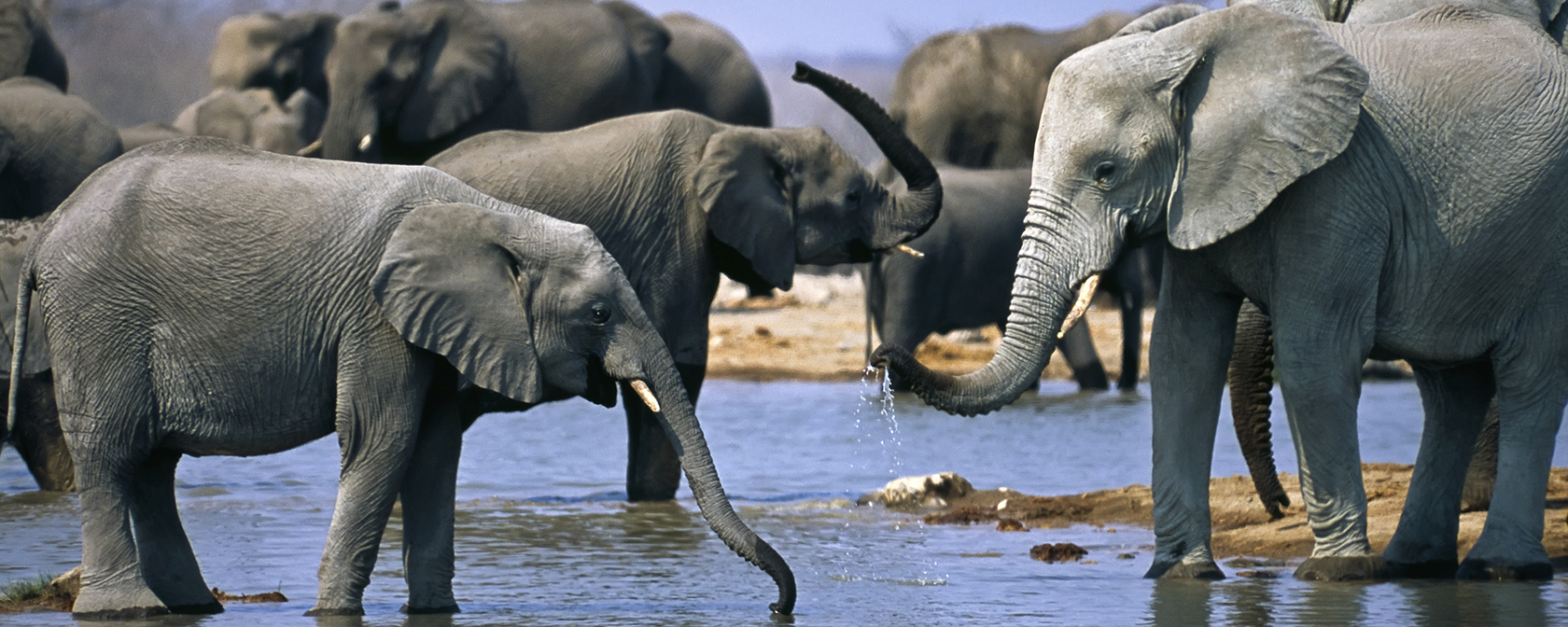By Sara Amundson and Kitty Block
Our agenda for the protection of wildlife is an ambitious one, focusing on the most serious threats to threatened and endangered animals in the United States and around the world. We’ve invested a lot of energy and resources in the fights to stop the trophy hunting industry in its tracks, to minimize human-wildlife conflict, halt wildlife trafficking, reduce consumer demand for products derived from endangered and threatened species, cripple the shark fin trade, end commercial whaling and other threats to marine life and eliminate the live markets that have played a role in the transmission of pandemic diseases like COVID-19.
In the United States, whether it’s litigating in the defense of endangered and threatened species, pressing the case for administrative rules to protect animals here and elsewhere or lobbying in support of positive legislation to guarantee the survival and flourishing of wildlife across the globe, we’re making the strongest possible commitments. We’re doing the same in other nations and through international treaties like CITES.
Currently, in the U.S. Congress, we’re supporting a number of measures designed to protect wild animals around the world and to eliminate threats to their survival. That includes a bill just introduced by Senators Chris Coons, D-Del., and Rob Portman, R-Ohio, the Eliminate, Neutralize, and Disrupt (END) Wildlife Trafficking Reauthorization and Improvements Act of 2020, to reauthorize a key interagency task force that supports a comprehensive approach to global wildlife anti-poaching and anti-trafficking efforts, ramping up investments in enforcement, strategies to reduce consumer demand and online sales, and expanded global cooperation to confront the trade in animals and animal parts that is driving a number of wild species to the precipice of extinction.
We’ll say more about the Coons/Portman bill and other new measures in a few days, but for today, we’ll just say that they are emblematic of our overall philosophy and perspective which is to protect animals and to ensure their future.
Needless to say, Safari Club International has a very different approach, one it celebrates every year with a conference featuring high-bid auctions for the right to kill elephants, leopards, lions, giraffes, rhinos, bears, crocodiles and dozens of other embattled species worldwide. This week, however, SCI announced it was cancelling its 50th anniversary convention in Las Vegas due to COVID-19 concerns. The announcement stated that the ongoing pandemic had “made it impossible to conduct a successful event... or serve the greater good of wildlife conservation.”
The question we all ask ourselves is how can killing sentient, ecologically significant and often rare animals for bragging rights and wall hangings ever really “serve the greater good of wildlife conservation”? The resounding answer is that it doesn’t.
If SCI truly wanted to serve the greater good, it could go online with its event and use it to inform its supporters about opportunities to stem the tide of contemporary threats to wildlife and support authentic conservation efforts. There’s no shortage of threats and there’s always plenty to learn. The truth, however, is that the SCI annual conference is a lurid spectacle and rally for unbridled trophy hunting throughout the world. And when you think about it, if yours is the kind of organization that exists primarily to encourage a reckless, needless and widely disapproved pastime, with an annual conference that does little more than celebrate and auction off the right to kill endangered and threatened species for something as gruesome as a body part trophy, you’d be running a pretty serious risk if you went virtual.
If SCI wants to serve the greater good of wildlife conservation, it should join with us and other organizations in support of the numerous federal and state bills aimed at saving and protecting endangered wildlife worldwide. The inescapable conclusion is that SCI is not about conservation at all. But we are and we know you all are too.
Kitty Block is President and CEO of the Humane Society of the United States.




